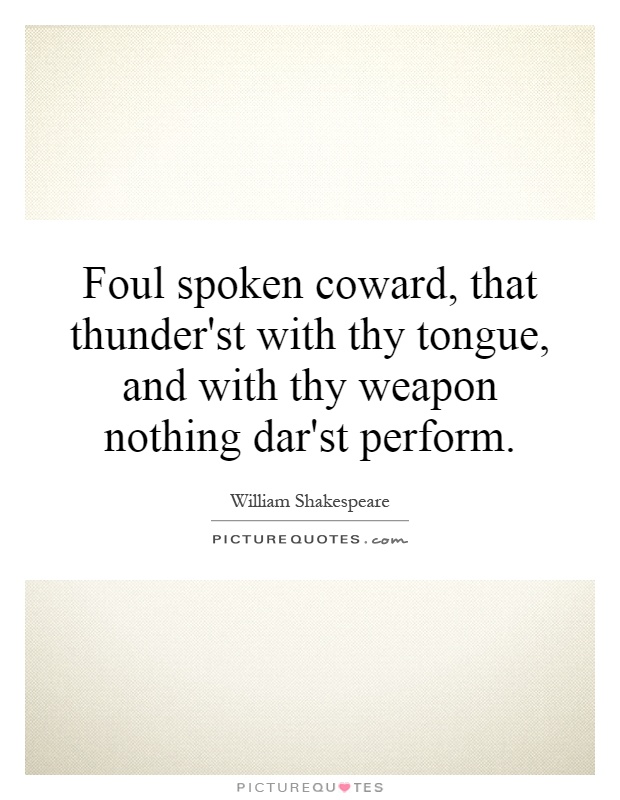Foul spoken coward, that thunder'st with thy tongue, and with thy weapon nothing dar'st perform

Foul spoken coward, that thunder'st with thy tongue, and with thy weapon nothing dar'st perform
The line "Foul spoken coward, that thunder'st with thy tongue, and with thy weapon nothing dar'st perform" is a powerful and scathing insult from William Shakespeare's play, "Richard III". In this play, the character of Richard III is known for his cunning and manipulative nature, as well as his ruthless ambition to seize the throne of England. This particular line is spoken by Queen Margaret, a character who has been wronged by Richard and is cursing him for his treachery.The insult is a condemnation of Richard's cowardice and hypocrisy. Despite his ability to use his words to manipulate and deceive others, he lacks the courage to back up his threats with action. He is all talk and no substance, relying on his silver tongue to achieve his goals rather than facing his enemies head-on. This makes him a despicable and contemptible character in the eyes of Queen Margaret and the audience.
The use of the word "thunder'st" in the insult is particularly evocative, suggesting that Richard's words are loud and powerful, but ultimately empty and hollow. Like thunder, his words may be intimidating and imposing, but they lack the substance and strength to truly make an impact. This highlights the contrast between Richard's bravado and his actual cowardice, exposing him as a fraud and a charlatan.
Furthermore, the insult also serves to highlight the theme of appearance versus reality in the play. Richard presents himself as a strong and fearless leader, but in reality, he is a weak and cowardly individual who relies on deceit and manipulation to achieve his goals. The line serves as a reminder that true strength comes from actions, not words, and that those who hide behind a facade of bravado are ultimately doomed to fail.












 Friendship Quotes
Friendship Quotes Love Quotes
Love Quotes Life Quotes
Life Quotes Funny Quotes
Funny Quotes Motivational Quotes
Motivational Quotes Inspirational Quotes
Inspirational Quotes